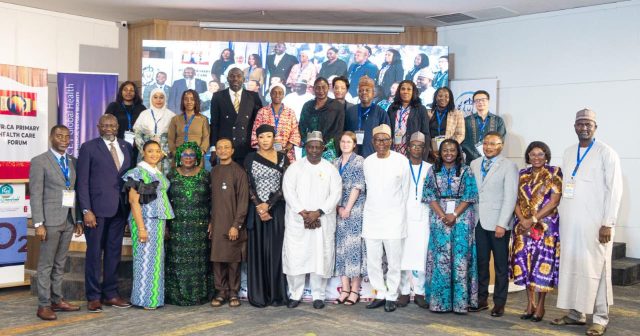PharmAccess Foundation has urged African health leaders to adopt a franchise-style model in delivering primary healthcare, stressing the need for accountability, standardised processes, and consistent quality across facilities.
The call was made on Monday at the Africa Primary Health Care Forum 2025 held in Abuja. Themed “Reimagining Primary Health Care for Universal Health Coverage and Health Security in Africa”, the forum brought together policymakers, health experts, and private sector stakeholders from across the continent.
Country Director of PharmAccess Nigeria, Njide Ndili, said the time had come to break away from outdated approaches and prioritise innovation that produces real health outcomes.
“Primary healthcare must be reimagined. It needs to operate like a successful franchise, with clear systems, standardised processes, and consistent quality that people can trust. This is not a dream; it is achievable if we act boldly, stop doing the same things, and embrace innovation. Our communities deserve no less,” she said.
Also speaking, Head of Medical Operations at the Lagos State Health Management Agency, Dr Olusegun Fadipe, said the state was moving away from traditional funding models to performance-based financing and value-driven care.
“In Lagos, we’ve domesticated the SafeCare tool, and we’re now moving into value-based care and performance-based financing to strengthen accountability and sustainability. If there’s no equality in the quality of services, there shouldn’t be equality in payments,” he said.
From the northern region, Joy Bako of the Gombe State Primary Health Care Development Agency stressed the role of community participation in improving service delivery. She said local engagement boosts ownership, encourages accountability, and enhances facility performance.
“Empowering Ward Development Committees and training local assessors have played a major role in sustaining quality,” she added.
Meanwhile, Chief Executive Officer of EHA Clinics, Dr Ifunanya Ilodibe, highlighted the need to build trust and leverage technology to close gaps between public health expectations and private healthcare delivery.
“Trust is the currency of healthcare. We embedded our Community Health Extension Workers and empowered them with digital tools to connect the community to PHCs. Being private doesn’t diminish our responsibility; if the community is unhealthy, everyone suffers,” she said.







